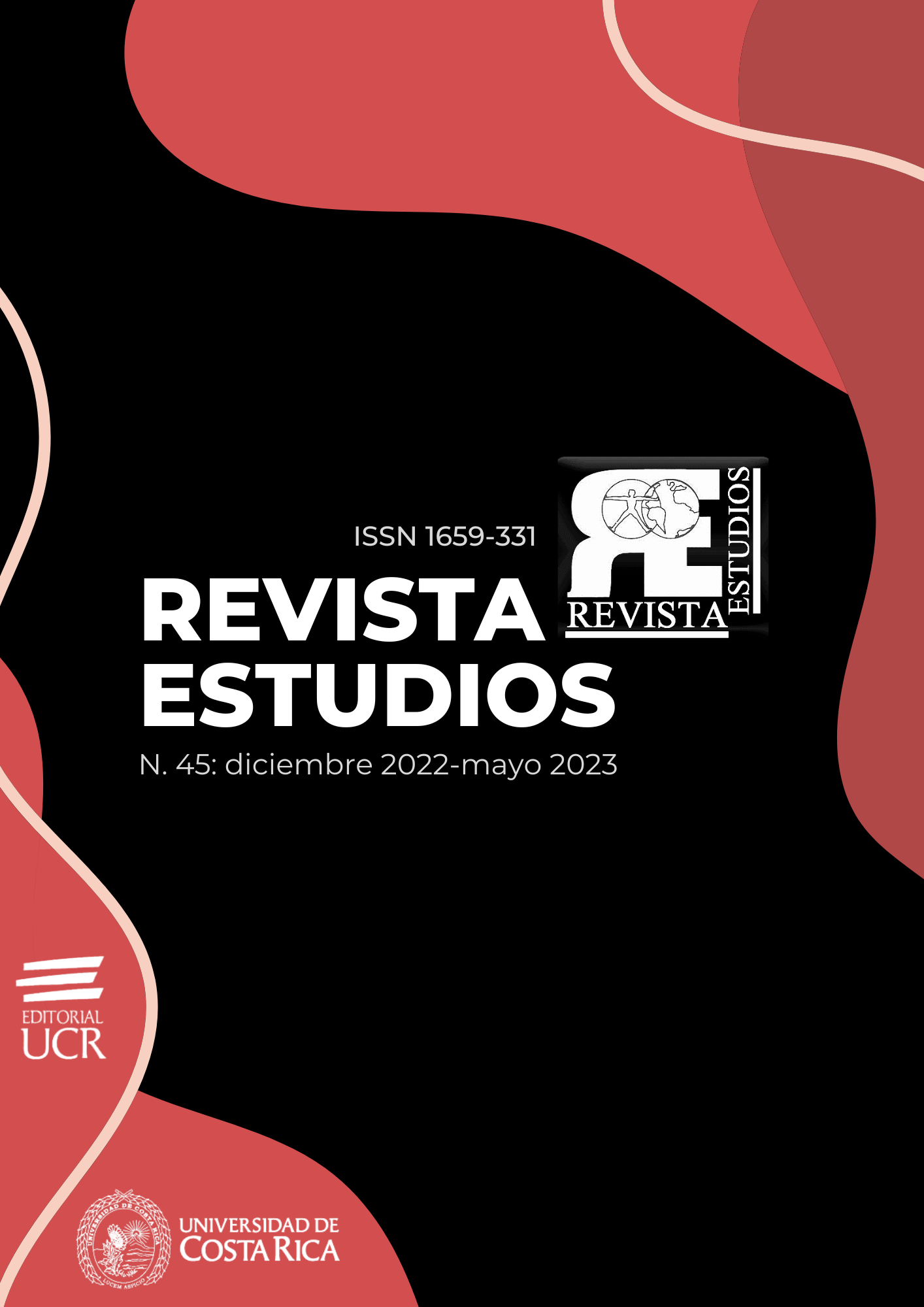Abstract
This article pretends to analyze the development of postwar Japan, what is known as its "second modernization", using both historiographical sources and literary essays as a historical source since literary works are a reflection of the society in a certain historical moment. In this manner, they can both produce and reproduce existing inequalities of power, or in contrast, propose another possible reality opposed to the current world. Furthermore, essays written by the Japanese author Yukio Mishima (1925-1970) and by the Costa Rican Hilda Chen-Apuy (1923-2017) are used, evidencing that they were questioners of the social, historical, and cultural reality of the modernization of post-war Japan, but from unequal perspectives and with different interests, which is directly related to their lives, ideals, beliefs, and values.
References
Almarza, R. (2018). Breve historia del Japón feudal. Nowtilus.
Bowen, R.G. (1992). Japan's Foreign Policy. Political Science and Politics 25 (1), 57-73. https://bit.ly/34jlVZP.
Chen-Apuy, H. (1982). Minamata: el costo del desarrollo industrial. En Japón después del milagro. El Colegio de México.
Chen-Apuy, H. (2008). De la vida, del amor y de la amistad, un puente entre culturas. Editorial UCR.
Correa, F. (2017). Desarrollo económico de Japón: de la génesis al llamado milagro económico. Rev.fac.cienc.econ. 25 (1), 57-73. https://bit.ly/33p5kmM.
Gómez, S. (2021). El mar de la fertilidad: una aproximación a la ideología de Yukio Mishima. [Tesis de Maestría. Universidad Nacional de Colombia]. https://bit.ly/3yPL8uI.
Hane, M. (2017). Breve historia de Japón. Alianza editorial.
Jansen, M. (2000). The making of modern Japan. Belknap Harvard.
Jiménez, R. (2020). Mujeres nacidas en la ruralidad: los casos de Hilda Chen-Apuy y Marcelle Taylor Brown. Revista Comunicación 28 (40), 30-37. https://bit.ly/3J5xmJb.
Mackenbach, W. (2015). Historia, memoria y ficción. Tirana Memoria de Horacio Castellanos Moya. Ayer (97), 83-111.
Mantilla, M.B. (2018). El último samurái de la modernidad: Significaciones y símbolos sociales de la Modernidad japonesa en la obra de Yukio Mishima. [Título de sociología con mención en desarrollo. Pontificia Universidad Católica del Ecuador]. https://bit.ly/3PEgKKn.
Ministerio de Cultura y Juventud. Hilda Chen-Apuy Espinoza. Acceso el 29 de julio de 2022. https://bit.ly/3OEvNTD.
Mishima, Y. (2013). La ética del samurái en el Japón Moderno. Alianza Editorial.
Mishima, Y. (1968). El sol y el acero.
Mohomed, C. (2012). La pureza del samurái: historia y política en el pensamiento de Yukio Mishima. História (São Paulo) 31 (1), 121-144. https://bit.ly/3uS5hiF.
Picado L. (2012). Semblanza. Hilda Chen-Apuy Espinoza. Día Internacional de la Mujer: 8 de marzo. Conexiones 4 (1), 4-7. https://bit.ly/3OlrIUf.
Roque R. (2009). Exotismo y autoridad cultural modernista: dos viajeros centroamericanos por el Extremo Oriente. En Grinberg, V. y Roque, R. Tensiones de la modernidad. Del modernismo al realismo. Hacia una Historia de las Literaturas Centroamericanas – II. F&G Editores. 167-188.
Savater, F. (2014). El arte de ensayar. Pensadores imprescindibles del siglo XX. Galaxia Gutenberg.
Solano, S., y Ramírez, J. (2016). Análisis e interpretación de textos literarios. https://bit.ly/3ISbK2017zJ.
Whitney, J. (1985). El imperio japonés. Siglo veintiuno editores.
